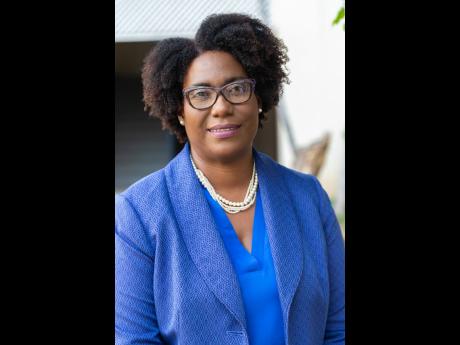Lack of MRI, CT machines affecting KPH’s ability to manage patients
For the last five years, the Kingston Public Hospital (KPH) has been without a magnetic resonance imaging (MRI) machine. A year ago, its computerised tomography (CT) machine stopped working. The situation has reportedly been causing distress for...
For the last five years, the Kingston Public Hospital (KPH) has been without a magnetic resonance imaging (MRI) machine. A year ago, its computerised tomography (CT) machine stopped working.
The situation has reportedly been causing distress for some patients and their relatives, but Senior Medical Officer Dr Natalie Whiley disclosed that the lack of the two vital pieces of diagnostic equipment has also made things “difficult” for staff at the island’s premier trauma hospital.
“Both the CT and MRI are critical pieces of equipment because they allow for diagnostic imaging and we really need those pieces of equipment to ensure that the clinical decision making is accurate. So when we don’t have those machines, then it means that it impacts our ability to manage our patients,” she told The Gleaner when questioned about the matter last week.
The MRI and CT machines are used to take pictures of internal organs, but the MRI provides a more detailed image.
Whiley said that over the years, the hospital, through the government’s public-private partnership with other healthcare facilities, has been accessing those diagnostic services at private entities. However, she admitted that this arrangement hampers the level of efficiency at KPH.
“That means transporting the patient out [and] finding the requisite staff. Sometimes patients may not be stable enough to be transported out,” she said, “The medical team is concerned, as well because we really want to be able to make real-time clinical decisions.”
Ambulance service
She also pointed to the fact that only two ambulances are assigned to KPH, and each day 15 to 20 patients need these diagnostic imaging services, which, she said, has been putting added strain on the hospital’s resources.
“There’s a lot of pressure on the ambulance service to take patients out as well. Usually, they have to be accompanied by nursing staff, depending on the situation. Sometimes, for patients who are in ICU (intensive care unit), for example, we would have to have doctor accompanying them as well,” she said.
But while touting that the public-private partnerships have been working, Health Minister Dr Christopher Tufton told The Gleaner that the government is currently considering leasing these equipment rather than purchasing them. A key part of these lease agreements, he said, will be the maintenance contracts attached.
“A big part of the performance of the machine is the fact that when they break down, we have to wait on people to fly into the country with parts and so on,” he said.
Stating that a lot of the diagnostic equipment in the island’s public hospitals are “old and outdated”, the minister said the government spends close to $1 billion each year for patients to access these services in the private sector.
“What is most important to us is that we don’t deprive any patient that needs an MRI or any other such diagnosis services that they are deprived of,” he said.
Whiley, in the meantime, remains optimistic that the KPH will receive at least an MRI machine.
“I am hopeful that there will be some well-needed repair, perhaps replacement, because the technology is changing as well. So we’re talking about a unit which may be approaching the end of its useful life in terms of technology,” she told The Gleaner,”So we really, perhaps, should be moving towards replacing to ensure that the patients here get all of what now needs to be in place for us to properly deliver that service.”
South East Regional Health Authority Director Errol Greene, who has often voiced his concern about the outdated medical equipment at KPH, told The Gleaner that the CT machine is being repaired and that the MRI machine will be replaced. He was, however, unable to state a timeline for this.
“Those things take a long time to procure. I’ve given the instructions for it to be done, but it’s not something you can go to a supermarket and pick up. It will take a while; we are in the process of replacing it,” he said.

